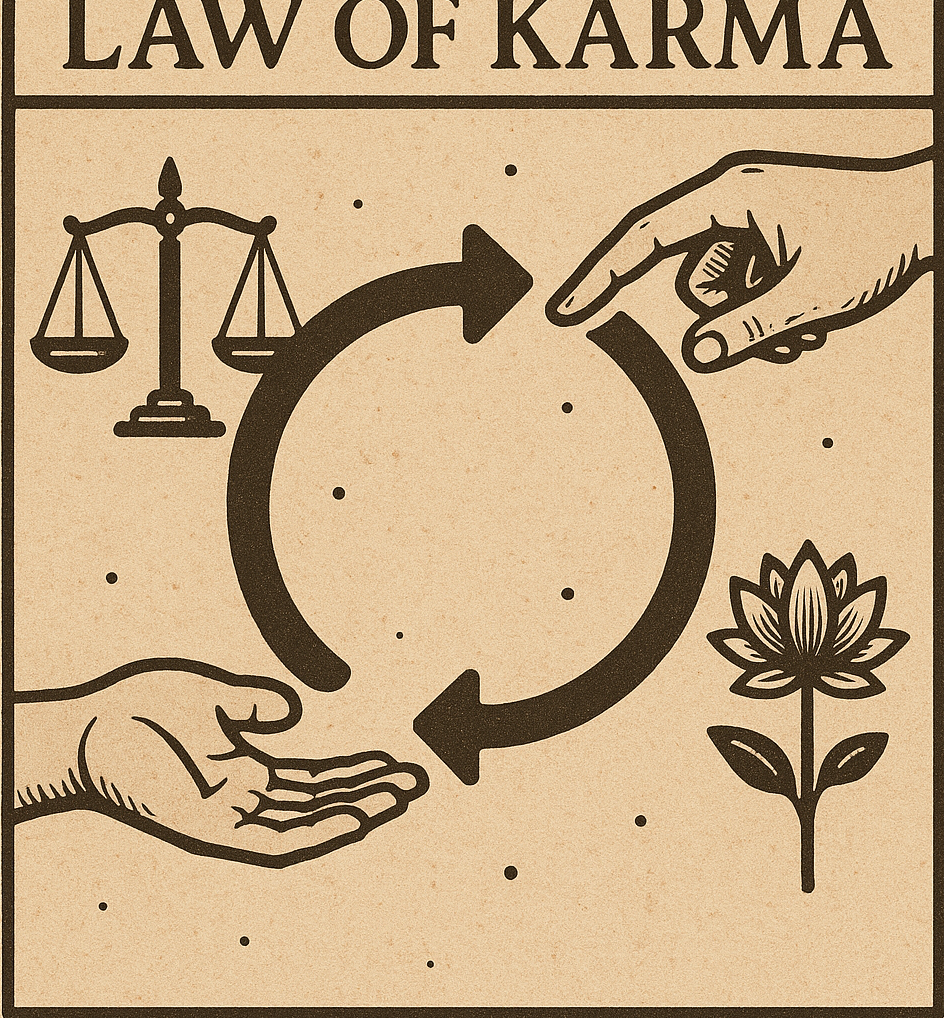The Law of Karma – What You Sow, You Reap
In every corner of the world, people wonder why life unfolds the way it does. Why do some experience happiness while others face endless challenges? Why do good people sometimes suffer and those who harm others appear to succeed?
The answer to these eternal questions lies in one universal principle — the Law of Karma.
The word Karma comes from the ancient Sanskrit root “Kri”, meaning “to do” or “action.” In its simplest sense, karma means every action has a reaction. Just as a seed planted in fertile soil eventually grows into a tree, every thought, word, and deed we perform creates consequences that return to us in time.
This concept is not confined to Hindu philosophy alone. It forms the backbone of nearly every spiritual tradition in the world.
In Christianity, the Bible teaches, “As you sow, so shall you reap.”
In Buddhism, karma determines the cycle of birth and rebirth — what we call Samsara.
In Islam, the Qur’an says, “Whoever does an atom’s weight of good will see it, and whoever does an atom’s weight of evil will see it.”
The Sikh scripture, Guru Granth Sahib, echoes the same truth: “By one’s deeds, the robe of the body is obtained; by His Grace, the door of liberation is found.”
These teachings all reflect one reality — the universe is governed by moral balance.
Karma does not act as punishment or reward from an external God. It is a law of cause and effect, as natural as gravity. Just as a stone thrown upward must fall, every action we perform returns to us in one form or another. Positive deeds generate positive results; harmful deeds invite suffering. The timing may differ — sometimes instant, sometimes over years or even lifetimes — but the cycle is inevitable.
The beauty of this law is that it makes every human being responsible for their destiny. Karma teaches us that we are not helpless victims of fate. We are the creators of our own reality through our choices and intentions. If we wish to change our future, we must first change our present actions.
Karma also extends beyond mere behavior; it includes our thoughts and emotions. A kind thought creates positive energy, just as hatred or jealousy sends out negativity. Therefore, awareness is the first step toward freedom from negative karma. By being conscious of our motives, we start to live with mindfulness, compassion, and honesty.
One of the greatest misconceptions about karma is that it is purely about retribution — that bad actions lead to punishment. In truth, karma is education, not punishment. Its purpose is to teach the soul lessons through experience so that we evolve spiritually. When we suffer, it is not because the universe is cruel, but because it is guiding us toward understanding and growth.
The ultimate goal of karma is liberation — the end of the cycle of cause and effect. When a person attains perfect wisdom, selflessness, and compassion, their actions no longer create binding karma. This state of freedom is known as Moksha or Nirvana — where one becomes one with the Divine and transcends all duality.
In our daily lives, practicing good karma means choosing kindness over anger, forgiveness over revenge, and truth over deceit. Every act of love adds light to the world, while every act of hatred adds darkness.
The Law of Karma is not a distant philosophy — it is the heartbeat of existence. It reminds us that every moment is an opportunity to plant seeds of peace, goodness, and joy. And when we sow those seeds, the harvest that returns to us is nothing less than divine grace.
~Religion World










